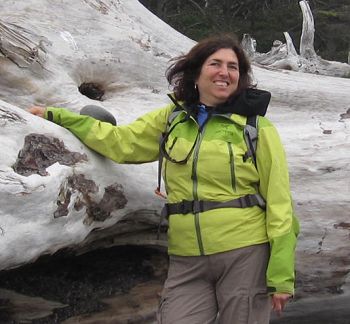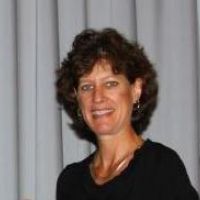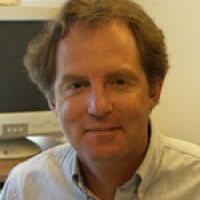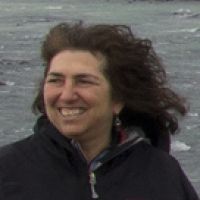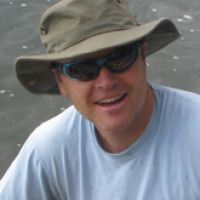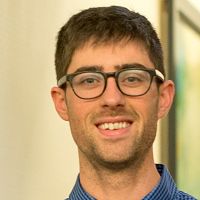Cross-CZO Studies
A goal of the CZO program is to catalyze transformative Earth surface science
in the coming decade by developing cross-CZO science that helps to establish:
-
a unifying theory of CZ evolution;
-
coupled systems models to explore how CZ services respond to anthropogenic, climatic, and tectonic forcing;
-
data sets that document differing CZ geologic and climatic settings, inform the theoretical framework, constrain conceptual and coupled systems models, and test model-generated hypotheses
CZO National cross-network activities.
The nine CZOs together have proposed the following activities to facilitate and promote cross-site science among the CZOs.
CZ Network Cyberseminar Series. The CZOs will work to run six cyberseminars/yr. Seminars will follow the following framework; all viewers can see the slides; the speaker can point and annotate, and participants can comment and question by voice or text. This cyberseries will build upon the series of six talks run for CZO by CUAHSI in 2011-2012. In the next 5 years, we will highlight scientists, postdocs, and students working on CZ questions, including those that are not a member of a CZO team. In some cases, a cyberseminar may be scheduled as follow-up after one of the cross-network activities outlined below. All CZ topics will be included.
CZ Network Research (CZNR) Workshops. Each observatory will run one ~2.5-day CZNR Workshop on an interdisciplinary topic. Workshop size will be ~12 scientists and students from in and outside of the CZO network. Each CZO host will provide travel allowances, housing, and meals. The intent is to stimulate researchers to work together and across disciplines. The broadly advertised workshops will result in a proposal, synthesis paper, or integrative model. CZO data will be highlighted appropriately in the context of data from other sites.
Drill-the-Ridge. Access to the bottom of the weathered rock zone is difficult to gain but is widely recognized as the CZ region we understand the least. In recognition of this, the CZO network produced a special issue in Earth Surface Processes and Landforms, and ran a special session at AGU. Pilot coring projects have been run at all six original CZOs, and will be extended. The idea, called “Drill the Ridge” was proposed at the International Workshop on Design of Global Environmental Gradient Experiments using International CZO Networks (8-9 Nov 2011, University of Delaware). The goal at each site will be to reach the water table and fresh rock, typically by wireline drilling, extracting core and overburden. Downhole logging will also be pursued, i.e., electrical logging, calipers, acoustic televiewer, optical televiewer, compensated density caliper, thermal neutral (relative porosity), heat pulse flowmeter, and hydrophysical logging. If possible, the borehole will be completed as a well, and instrumented with water level and temperature sensors, and will be used to collect water samples monthly using the method of choice (bailing or pump) at each site. These pilot coring projects will provide training for students in drilling technologies. The data from this initial Drill-the-Ridge campaign will provide preliminary data to be used to inform future proposals to core in more locations, with accompanying geophysical surveys, pump testing, and microbiological sampling. The depth of these initial pilot holes will vary from site to site. Holes will vary from 10 to 300 m in depth.
Joint Research Field Campaigns. All observatories will run three 5-day CZ Joint Research Field Campaigns spread over the next five years. Each site will host one field campaign, similar in format but with different foci. The host will support travel and accommodation for a total of 12 students, postdocs or scientists from other CZOs in each campaign. The intent is to stimulate researchers to develop shared data, to work together across disciplines, and to introduce students to new sites and techniques. It is expected that results from each Campaign will become part of the CZO community data resources. If appropriate, the CZOs may use the CZ Network Research Workshops to develop focused questions for the field campaigns, or for the CZ Network Research Workshops.
Cross-CZO modeling. Ongoing modeling activities at each of the CZOs will be communicated and integrated across the network through a series of cross site visits to other CZOs. During those visits, modelers will be cross-fertilized in terms of conceptualizations and codes and will learn how to make best use of available data. To facilitate this effort, each CZO will support travel to enable modelers to visit or travel to other CZOs.
NSF Division of Earth Sciences (EAR) Postdoctoral Fellowships have been awarded to scientists working to develop cross-CZO research programs.
Jill Marshall of the University of Oregon has been recently awarded an NSF postdoctoral fellowship for her cross-CZO proposal: Cracking the critical zone: Tree roots in fractures and a proposed mechanistic soil production function. The study’s overarching objective is to parameterize and calibrate a soil production function (a geomorphic process law) for forested landscapes based on observations of the mechanics of root-driven bedrock damage and detachment. The lack of a mechanistic bedrock to soil production function has hampered progress on a broad array of problems in critical zone science. This project will enable numerical experiments that explore how the presence and absence of vegetation control surface and near-surface processes and landscape form. Project mentors are Dr. William Dietrich (Director Eel River CZO), UC Berkeley (primary host institution), and Dr. Robert Anderson (Investigator Boulder Creek CZO), University of Colorado. Jill will start research during mid-summer 2015, working at the Eel River, Boulder Creek, and Southern Sierra CZOs where she can take advantage of the three CZO’s exposed roots in bedrock fractures, and site-specific differences in climate-driven rock-water availability and rock properties.
Read about more cross-CZO work of previous fellowship recipients: Dr. Adrian Harpold and Dr. Diana Karwan
Jill Marshall
National Cross-CZO Content
Only includes items marked with the "national" tag. To see additional cross-CZO website content, visit individual CZOs:
National | Boulder | Calhoun | Catalina-Jemez | Christina | IML | Luquillo | Reynolds | Shale Hills | Sierra
-
Cross-CZO Publications
2019
Ecological and genomic attributes of novel bacterial taxa that thrive in subsurface soil horizons. Brewer, Tess E., Emma L. Aronson, Keshav Arogyaswamy, Sharon A. Billings, Jon K. Botthoff, Ashley N. Campbell, Nicholas C. Dove, Dawson Fairbanks, Rachel E. Gallery, Stephen C. Hart, Jason Kaye, Gary King, Geoffrey Logan, Kathleen A. Lohse, Mia R. Maltz, Emilio Mayorga, Caitlin O’Neill, Sarah M. Owens, Aaron Packman, Jennifer Pett-Ridge, Alain F. Plante, Daniel D. Richter, Whendee L. Silver, Wendy H. Yang, Noah Fierer (2019): mBio Oct 2019, 10 (5) e01318-19 Cross-CZO National
2018
Reassessing the dissolved molybdenum isotopic composition of ocean inputs: The effect of chemical weathering and groundwater. King, E.K. and Pett-Ridge, J.C. (2018): Geology 46 (11): 955-958 Cross-CZO National
2018
Using research networks to create the comprehensive datasets needed to assess nutrient availability as a key determinant of terrestrial carbon cycling. Vicca, S.; Stocker, B.D.; Reed, S.; Wieder, W.R.; Bahn, M.; Fay, P.A.; Janssens, I.A.; Lambers, H.; Peñuelas, J.; Piao, S.; Rebel, K.T.; Sardans, J.; Sigurdsson, B.D.; Sundert, K.V.; Wang, Y.P.; Zaehle, S.; Ciais, P. (2018): Environmental Research Letters Cross-CZO National
2018
Interdisciplinary Teaching about Earth and the Environment for a Sustainable Future Book Chapter: Implementing and Assessing InTeGrate Critical Zone Science Materials in an Undergraduate Geoscience Program. Ashlee Dere, Carol Engelmann, Timothy White, Adam Wymore, Adam Hoffman, James Washburne, Martha Conklin (2018): Springer Cross-CZO National
2018
Mercury sourcing and sequestration in weathering profiles at six Critical Zone Observatories. Richardson, Justin B., Arnulfo A. Aguirre, Heather L. Buss, A. Toby O'Geen, Xin Gu, Daniella M. Rempe, and Daniel deB. Richter (2018): Global Biogeochemical Cycles, 32(10):1542-1555 Cross-CZO National
2018
Clays in the Critical Zone. Paul A. Schroeder (2018): Cambridge University Press, Cambridge, UK Cross-CZO National
2018
Ideas and perspectives: Strengthening the biogeosciences in environmental research networks. Richter, D.D., S.A. Billings, P.M. Groffman, E.F. Kelly, K.A. Lohse, W.H. McDowell, T.S. White, S. Anderson, D.D. Baldocchi, S. Banwart, S. Brantley, J.J. Braun, Z.S. Brecheisen, C.W. Cook, H.E. Hartnett, S.E. Hobbie, J. Gaillardet, E. Jobbagy, H.F. Jungkunst, C.E. Kazanski, J. Krishnaswamy, D. Markewitz, K. O’Neill, C.S. Riebe, P. Schroeder, C. Siebe, W.L. Silver, A. Thompson, A. Verhoef, G. Zhang (2018): Biogeosciences 15: 4815-4832 Cross-CZO National
2018 (In Review)
Critical zone science informs landscape management through quantification of slow and often elusive (episodic) constraints on ecosystem services. Lohse, K.A., Commendador, A., Stalder, S., Glossner, K., Macek, C., and R. MacNeille (2018): Earth's Future Cross-CZO National
2018
CZO Network Attributes Table. CZO Network (2018): CZO National Office Cross-CZO National
2018
Geomorphic influences on the distribution and accumulation of pyrogenic carbon (PyC) following a low severity wildfire in northern New Mexico. Galanter, A., Cadol, D., and K.A. Lohse (2018): Earth Surface Processes and Landforms 43: 2207–2218 Cross-CZO National
2017
The Frontier Beneath our Feet. Grant, G., and Dietrich, W.E. (2017): Water Resources Research 54 (4): 2605-2609 Cross-CZO National
2017
Fostering Collaboration Across the US Critical Zone Observatories Network. Sharkey, S. and White, T. (2017): 2017 American Geophysical Union Fall Meeting, New Orleans, LA, 11-15 Dec Cross-CZO National
2017
How soil water storage moderates climate changes effects on transpiration, across the different climates of the Critical Zone Observatories. Heckman, C.; Tague, C. (2017): Fall Meeting, American Geophysical Union, December 2017. Abstract H23H-1777. Cross-CZO National
2017
New Opportunities for Critical Zone Science. Sullivan, P.L., Wymore, A.S., McDowell, W.H. et al. (2017): 2017 CZO Arlington Meeting White Booklet Cross-CZO National
2017
Critical zone structure controls concentration-discharge relationships and solute generation in forested tropical montane watersheds. Wymore, A.; Brereton, R. L.; Ibarra, D. E.; Maher, K.; McDowell, W. H. (2017): Water Resources Research 53, 6279–6295 Cross-CZO National
2017
Characterizing hyporheic exchange processes using high-frequency electrical conductivity-discharge relationships on subhourly to interannual timescales. Singley, J. G., Wlostowski, A. N., Bergstrom, A. J., Sokol, E. R., Torres, C. L., Jaros, C., Wilson, C. E., Hendrickson, P. J., Gooseff, M. N. (2017): Water Resources Research 53, 4124–4141 Cross-CZO National
2017
Snowmelt controls on concentration‐discharge relationships and the balance of oxidative and acid‐base weathering fluxes in an alpine catchment, East River, Colorado. Winnick M.J., Carroll R.W.H., Williams K.H., Maxwell, R.M., Dong, W., Maher K. (2017): Water Resources Research 53, 2507–2523 Cross-CZO National
2017
Colloidal transport in the Gordon Gulch catchment of the Boulder Creek CZO and its effect on C‐Q relationships for silicon. Aguirre A.A., Derry L.A., Mills J.T., Anderson S.P. (2017): Water Resources Research 53, 2368–2383, Cross-CZO National
2017
The influence of mixing on stable isotope ratios in porous media: A revised Rayleigh model. Druhan J.L, Maher K. (2017): Water Resources Research, 53, 1101–1124 Cross-CZO National
2017
Concentration-Discharge Relations in the Critical Zone: Implications for Resolving Critical Zone Structure, Function and Evolution. Chorover, J., Derry, L. A., McDowell, W. H. (2017): Water Resources Research 53(11): 8654–8659 Cross-CZO National
2017
Growing new generations of critical zone scientists. Wymore, Adam S., Nicole R. West, Kate Maher, Pamela L. Sullivan, Adrian Harpold, Diana Karwan, Jill A. Marshall, Julia Perdrial, Daniella M. Rempe and Lin Ma (2017): Earth Surface Processes and Landforms 42 (14): 2498-2502 Cross-CZO National
2017
Regional sensitivities of seasonal snowpack to elevation, aspect, and vegetation cover in western North America. Christopher J. Tennant, Adrian A. Harpold, Kathleen Ann Lohse, Sarah E. Godsey, Benjamin T. Crosby, Laurel G. Larsen, Paul D. Brooks, Robert W. Van Kirk, Nancy F. Glenn (2017): Water Resources Research 53 Cross-CZO National
2017
Geochemical evolution of the Critical Zone across variable time scales informs concentration-discharge relationships: Jemez River Basin Critical Zone Observatory. McIntosh J.C., Schaumberg C., Perdrial J., Harpold A., Vázquez-Ortega A., Rasmussen C., Vinson D., Zapata-Rios X., Brooks P.D., Meixner T., Pelletier J., Derry L., Chorover J. (2017): Water Resources Research 53(5): 4169–4196 Cross-CZO National
2017
Designing a network of critical zone observatories to explore the living skin of the terrestrial Earth. Brantley, S.L., McDowell, W.H., Dietrich, W.E., White, T.S., Kumar, P., Anderson, S., Chorover, J., Lohse, K.A., Bales, R.C., Richter, D., Grant, G., and Gaillardet, J. (2017): Earth Surface Dynamics, 5, 841–860 Cross-CZO National
2017
Reviews and syntheses: on the roles trees play in building and plumbing the critical zone. Brantley, Susan L., David M. Eissenstat, Jill A. Marshall, Sarah E. Godsey, Zsuzsanna Balogh-Brunstad, Diana L. Karwan, Shirley A. Papuga, Joshua Roering, Todd E. Dawson, Jaivime Evaristo, Oliver Chadwick, Jeffrey J. McDonnell, Kathleen C. Weathers (2017): Biogeosciences, 14, 5115-5142 Cross-CZO National
2017
Prevalence and magnitude of groundwater use by vegetation: a global stable isotope meta-analysis. Jaivime Evaristo and Jeffrey J. McDonnell (2017): Scientific Reports 7 Cross-CZO National
2017
Enhancing Interoperability and Capabilities of Earth Science Data using the Observations Data Model 2 (ODM2). Hsu, Leslie, Emilio Mayorga, Jeffery S. Horsburgh, Megan R. Carter, Kerstin A. Lehnert and Susan L. Brantley (2017): Data Science Journal, 16: 4, pp. 1–16 Cross-CZO National
2017
Conference Program - AGU Chapman Conference on Extreme Climate Event Impacts on Aquatic Biogeochemical Cycles and Fluxes. Inamdar, S., McDowell W.H., Shanley J. B., Minor E., Park J. (2017): AGU Chapman Conference, San Juan, PR 2017 Cross-CZO National
2017
Controls on deep critical zone architecture: a historical review and four testable hypotheses. Riebe, C. S., Hahm, W. J., Brantley, S. L. (2017): Earth Surface Processes and Landforms, 42 (1): 128–156 Cross-CZO National
2016
Earth Surface Processes in the Critical Zone: An Introductory Course Designed for Teachers. White, T. (2016): The Earth Scientist XXXII, no. 3 (Fall 2016): 22–24 Cross-CZO National
2016
Drought in the Critical Zone: Engaging Students in Authentic Inquiry Through Data Jam. McGee, S., and Rodríguez Báez, N. (2016): The Earth Scientist XXXII, no. 3 (Fall 2016): 19–21 Cross-CZO National
2016
Using Scientist-Teacher Partnerships to Create Student-Driven Environmental Field Research Experiences in Primary and Secondary Education Classrooms. Gilmore, M., Stacy, E.., Meadows, M. and Sullivan, L. (2016): The Earth Scientist XXXII, no. 3 (Fall 2016): 28–32 Cross-CZO National
2016
Monarchs and the Critical Zone: A new spin on the study of butterflies. Cook, K., Augustinsky, M., Dye, A., Flowers, J., and McGee, S. (2016): The Earth Scientist XXXII, no. 3 (Fall 2016): 4–6 Cross-CZO National
2016
Special issue of The Earth Scientist about the Critical Zone and the US NSF Critical Zone Observatory (CZO) program. CZO Education/Outreach team (2016): The Earth Scientist, Volume XXXII, Issue 3, Fall 2016 Cross-CZO National
2016
Steering Committee report for Reynolds Creek CZO site visit and PI meeting. Keller K., Grant G. (2016): CZO Steering Committee Cross-CZO National
2016
Critical zone architecture and processes: a geophysical perspective. Holbrook, W. Steven (2016): American Geophysical Union 2016 Fall Meeting, San Francisco, CA Cross-CZO National
2016
Learning from the "deep changes in the land": The Critical Zone perspective in environmental science education. O'Neill, K., and Richter, D. (2016): The Earth Scientist 32 (3): 25-27 Cross-CZO National
2016
Influence of terrain aspect on water partitioning, vegetation structure, and vegetation greening in high elevation catchments in northern New Mexico. Zapata-Rios X., Brooks P.D., Troch P.A., McIntosh J. and Guo Q. (2016): Ecohydrology 9(5): 782-795 Cross-CZO National
2015
Geophysical imaging reveals topographic stress control of bedrock weathering. St. Clair, J., S. Moon, W. S. Holbrook, J. T. Perron, C. S. Riebe, S. J. Martel, B. Carr, C. Harman, K. Singha, D. deB. Richter (2015): Science 350 (6260): 534-538 Cross-CZO National
2015
Chapter 2 – The Role of Critical Zone Observatories in Critical Zone Science. White T., Brantley S., Banwart S., Chorover J., Dietrich W., Derry L., Lohse K., Anderson S., Aufdendkampe A., Bales R., Kumar P., Richter D., McDowell B. (2015): Developments in Earth Surface Processes 19: 15–78 Cross-CZO National
2015
Laser vision: lidar as a transformative tool to advance critical zone science. Harpold, A. A., Marshall, J. A., Lyon, S. W., Barnhart, T. B., Fisher, B. A., Donovan, M., Brubaker, K. M., Crosby, C. J., Glenn, N. F., Glennie, C. L., Kirchner, P. B., Lam, N., Mankoff, K. D., McCreight, J. L., Molotch, N. P., Musselman, K. N., Pelletier, J., Russo, T., Sangireddy, H., Sjöberg, Y., Swetnam, T., and West, N. (2015): Hydrol. Earth Syst. Sci., 19, 2881-2897 Cross-CZO National
2015
Frontiers in International Critical Zone Science - Beijing, China Workshop Report. Banwart, S. and Zhu, C. (2015): Beijing Workshop Report, May 21-23, 2014 Cross-CZO National
2015
Common Critical Zone Observatory (CZO) Infrastructure and Measurements. J. Chorover, S. Anderson, A. K. Aufdenkampe, R. C. Bales, S. L. Brantley, W. Dietrich, P. Kumar, K. A. Lohse, W. McDowell, D. Richter, T. White (2015): A Guide Prepared By CZO PIs, May 05, 2015 Cross-CZO National
2014
Common questions of the US NSF–supported Critical Zone Observatories. Dietrich, W.E. and Lohse, K. (2014): A Guide Prepared By CZO PIs Cross-CZO National
2014
Report on Drilling, Sampling, and Imaging the Depths of the Critical Zone, an NSF Workshop. Riebe, C. S. and Chorover, J. (2014): Open Project Report to the Critical Zone Community Cross-CZO National
2014 (In Review)
Making soil. Dixon, J. L., Riebe, C. S. (2014): Elements, in review Cross-CZO National
2013
Critical Zone Science and Observatories. Brantley, S.L., White, T.S., Anderson, S.P., Bales, R.C., Chorover, J., McDowell, W.H. (2013): Abstract TH15D-01 presented at 2013 Fall Meeting, AGU, San Francisco, CA, 9-13 Dec. Cross-CZO National
2013
Graduate Research Group White Paper: Cross-CZO Research Potential. Harpold, A.A., D. Karwan, J. Perdrial, J.A. Marshall, J. Driscoll, A. Neal, and C. Phillips (2013): Internal CZO publication Cross-CZO National
2013
Sustaining Earth's Critical Zone - Basic Science and Interdisciplinary Solutions for Global Challenges. Banwart, S., Chorover, J., Gaillardet, J., Sparks, D., White, T., et al. (2013): The University of Sheffield, United Kingdom, ISBN: 978-0-9576890-0-8 Cross-CZO National
2013
SI2-SSI: The community-driven BiG CZ software system for integration and analysis of bio- and geoscience data in the critical zone. Aufdenkampe, A.K., Zaslavsky, I., Mayorga, E., Horsburgh, J. and Lehnert K. (2013): Submitted to NSF Solicitation 13-525 Scientific Software Integration. Cross-CZO National
2012
Critical Zone Observatories (CZOs): Integrating measurements and models of Earth surface processes to improve prediction of landscape structure, function and evolution (Invited). Chorover J., Anderson S. P., Bales R. C., Duffy C., Scatena F. N., Sparks D. L., White T. (2012): Abstract GCS4A-05 presented at 2012 Fall Meeting, AGU, San Francisco, Calif., 3-7 Dec (Talk) Cross-CZO National
2012
NSF Proposal: EarthCube Domain End-User Workshop: Engaging the Critical Zone community to bridge “long tail” science with big data. Aufdenkampe, A.K.; Duffy, C.J.; Tucker, G.E. (2012): NSF Award #1252238 Cross-CZO National
2012
Common Critical Zone Observatory Infrastructure and Measurements. J. Chorover, F.N. Scatena, T. White, S. Anderson, A.K. Aufdenkampe, R.C. Bales, S.L. Brantley, G. Tucker. (2012): A Guide Prepared By CZO PIs, September 27, 2012 Cross-CZO National
2012
NSF Workshop Report: Towards a Unifying Theory of Critical Zone Structure, Function and Evolution. Chorover, J. (2012): JRB-SCM CZO, pp. 22. Cross-CZO National
2011
The Initial Design of Data Sharing Infrastructure for the Critical Zone Observatory. Zaslavsky, I., T. Whitenack, M. Williams, D. G. Tarboton, K. Schreuders, and A. Aufdenkampe (2011): Proceedings of the Environmental Information Management Conference, Santa Barbara, CA, 28-29 September, EIM'2011, pp. 145-150 Cross-CZO National
2011
Mt Lemmon ‐ Santa Catalina Mountains Field Trip. JRB-SCM CZO Team (2011): CZO All-Hands Meeting, Biosphere 2, May 8-12, 2011 Cross-CZO National
2011
CZChemDB and EarthChem: Advancing management and access of critical zone geochemical data. Niu, X., Lehnert, K. A.. Williams, J., Brantley, S. L. (2011): Applied Geochemistry 26:S108–S111, Cross-CZO National
2011
Twelve testable hypotheses on the geobiology of weathering. Brantley, S.L., Megonigal, J.P., Scatena, F.N., Balogh-Brunstad, Z., Barnes, R.T., Bruns, M.A., Van Cappellen, P., Dontsova, K., Hartnett, H.E., Hartshorn, A.S., Heimsath, A., Herndon, E., Jin, L., Keller, C.K., Leake, J.R., McDowell, W.H., Meinzer, F.C., Mozdzer, T.J., Petsch, S, Pett-Ridge, J., Pregitzer, K.S., Raymond, P.A., Riebe, C.S., Shumaker, K., Sutton-Grier, A., Walter, R., and Yoo, K. (2011): Geobiology 9(2): 140-165, Cross-CZO National
2010
Dynamical modelling of concentration–age–discharge in watersheds. Duffy, C. (2010): Hydrol. Process. 24, 1711–1718 Cross-CZO National
2010
Future Directions for Critical Zone Observatory (CZO) Science. Anderson, R.S., Anderson, S., Aufdenkampe, A.K., Bales, R., Brantley, S., Chorover, J., Duffy, C.J., Scatena, F.N., Sparks, D.L., Troch, P.A., Yoo, K. (2010): CZO Community, December 29, 2010 Cross-CZO National
2010
Development of an integrated information system for Critical Zone Observatory data . Whitenack, T , Williams, M W, Tarboton, D G, Zaslavsky, I, Durcik, M, Lucas, R G, Dow, C, Meng, X, Bills, B, Leon, M, Yang, C, Arnold, M, Aufdenkampe, A K, Schreuders, K, Alvarez, O. (2010): Fall Meeting, American Geophysical Union. December 2010. Abstract IN31B-1289 Cross-CZO National
2008
Critical Zone Observatories: Building a network to advance interdisciplinary study of Earth surface processes. Anderson, S.P., Bales, R.C., and Duffy, C.J. (2008): Mineralogical Magazine 72(1): 7-10. Cross-CZO National
-
Cross-CZO People
.(JavaScript must be enabled to view this email address)
Penn State
Aqueous Geochemistry, Geochemical Kinetics, Microbial Biogeochemistry
.(JavaScript must be enabled to view this email address), 607/255-9354
Cornell
Biogeochemical processes
Cross-CZO INVESTIGATOR
.(JavaScript must be enabled to view this email address)
Geomorphology
Cross-CZO INVESTIGATOR, STAFF, National Office Director
.(JavaScript must be enabled to view this email address)
Penn State
Geology, paleoclimatology, paleopedology, chemostratigraphy, organic petrology, hydrogeology.
Cross-CZO INVESTIGATOR, PostDoc
.(JavaScript must be enabled to view this email address)
INSTAAR
Hydrology, surface water - groundwater interactions, hydrologic connectivity, modeling, data
-
Cross-CZO News
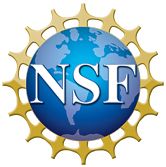
Critical Zone Collaborative Network
23 Nov 2020 (National, Boulder, Calhoun, Catalina-Jemez, Christina, Eel, IML, Luquillo, Reynolds, Shale Hills, Sierra) - As of fall 2020, the Critical Zone Observatory (CZO) program has been succeeded by the Critical Zone Collaborative Network (CZ Net).
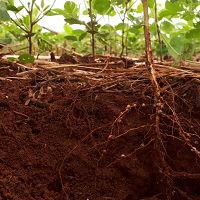
NSF Blog: No soils, no life
27 Oct 2020 (National, Boulder, Calhoun, Catalina-Jemez, Eel, IML, Luquillo, Reynolds, Shale Hills, Sierra) - They’re beneath our feet, but we seldom hear important signals in the soils
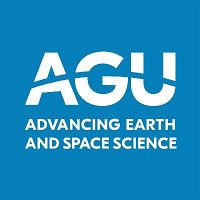
AGU 2020: Sessions related to CZ Science
06 Oct 2020 (National, Boulder, Calhoun, Catalina-Jemez, Eel, IML, Luquillo, Reynolds, Shale Hills, Sierra) - A list of sessions related to CZ Science at the upcoming virtual AGU 2020 Fall Meeting.
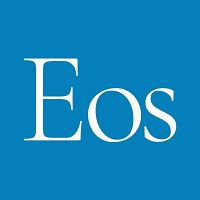
October 2020 Issue of Eos features Critical Zone Science
28 Sep 2020 (National, Boulder, Calhoun, Catalina-Jemez, Eel, IML, Luquillo, Reynolds, Shale Hills, Sierra) - In the October 2020 Issue, Eos focuses on the Critical Zone at a pivotal point as the discipline comes of age.

Job Opening: Associate or Full Professor at the University of Virginia
19 Aug 2020 (National, Eel) - Charlottesville, VA The Department of Environmental Sciences (EVSC) and the School of Data Science (SDS) at the University of Virginia invite...
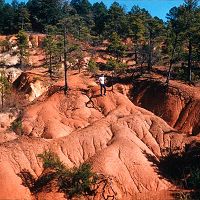
K-12 Activity: Humans and Soil Change
19 Jul 2020 (National, Calhoun) - The activity familiarizes students with some of the environmental and human factors that contribute to accelerated rates of soil erosion.
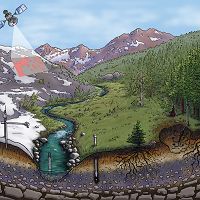
2020 CZO Webinar Series on Sustainability
17 Jun 2020 (National, Boulder, Calhoun, Catalina-Jemez, Eel, IML, Luquillo, Reynolds, Shale Hills, Sierra) - For an updated listing of these talks, including abstracts, see /national/education-outreach/sustainability-2020/ The U.S....
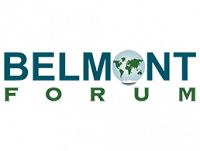
Belmont Forum Announces Collaborative Research Call on Soils
20 Apr 2020 (National, Boulder, Calhoun, Catalina-Jemez, Eel, IML, Luquillo, Reynolds, Shale Hills, Sierra) - The Belmont Forum is pleased to announce the launch of a collaborative research call on the theme: Towards Sustainability of Soils and Groundwater...
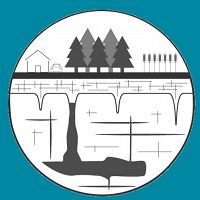
Carbonate Critical Zone Research Coordination Network to hold field workshop to Shale Hills CZO
04 Mar 2020 (National, Shale Hills) - Applications are being accepted for the workshop to be held August 2-5, 2020 at Temple University in Philadelphia.
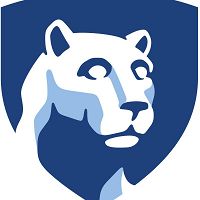
Job Opening: Professor & Department Head of Ecosystem Science and Management at Penn State
20 Nov 2019 (National, Shale Hills) - The Department of Ecosystem Science and Management at The Pennsylvania State University invites nominations and applications for the position of...

CZOs at AGU 2019
19 Nov 2019 (National, Boulder, Calhoun, Catalina-Jemez, Eel, IML, Luquillo, Reynolds, Shale Hills, Sierra) - A list of CZ-related sessions, abstracts and events at the 2019 AGU Fall Meeting.

PhD or MS studying nitrogen cycling at Penn State University
11 Nov 2019 (National, Shale Hills) - PhD or MS opportunities to study nitrogen cycling in forest and/or agricultural soils at Penn State University.
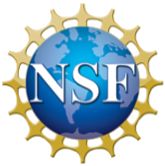
CZ colleagues: Please contact us about proposals for NSF’s CZ Collaborative Network, due 02 Dec 2019
08 Jul 2019 (National, Boulder, Calhoun, Catalina-Jemez, Christina, Eel, IML, Luquillo, Reynolds, Shale Hills, Sierra) - CZO will end Nov 2020, succeeded by the “CZ Collaborative Network”. Let’s explore how the CZ community can build upon the CZOs via new NSF proposals.

Assistant Teaching Professor of Soil Science - The Pennsylvania State University
17 Apr 2019 (National, Shale Hills) - The Department of Ecosystem Science and Management at The Pennsylvania State University invites applications for an Assistant Teaching Professor of...

NSF solicitation: Dynamics of Integrated Socio-Environmental Systems (CNH2)
20 Nov 2018 (National, Boulder, Calhoun, Catalina-Jemez, Eel, IML, Luquillo, Reynolds, Shale Hills, Sierra) - NSF Crosscutting CNH2: Dynamics of Integrated Socio-Environmental Systems (CNH2) Solicitation 19-528 DUE DATES Letter of Intent Deadline...
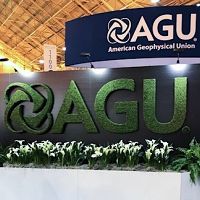
CZOs at AGU 2018
19 Nov 2018 (National, Boulder, Calhoun, Catalina-Jemez, Eel, IML, Luquillo, Reynolds, Shale Hills, Sierra) - The 2018 AGU Fall Meeting will be held December 10-14 in Washington, D.C.
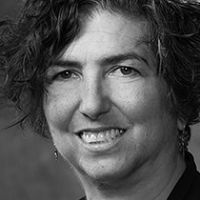
Congratulations Jill Marshall on receiving the 2018 Luna B. Leopold Young Scientist Award
06 Nov 2018 (National, Boulder, Eel, Reynolds, Sierra) - Marshall Receives 2018 Luna B. Leopold Young Scientist Award

NSF Discovery articles focus on the CZOs.
10 May 2018 (National, Boulder, Calhoun, Catalina-Jemez, Christina, Eel, IML, Luquillo, Reynolds, Shale Hills, Sierra) - The Discoveries section of the National Science Foundation's website on Critical Zone Observatories (CZOs).
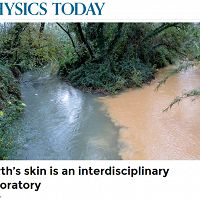
Earth’s skin is an interdisciplinary laboratory
29 Jan 2018 (National, Boulder, Calhoun, Catalina-Jemez, Eel, IML, Luquillo, Reynolds, Shale Hills, Sierra) - In the January 2018 issue of Physics Today, writer Toni Feder explores the scope of CZ research in the article, “Earth’s skin is an...
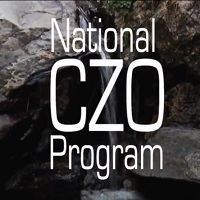
White paper of 2017 CZ Science Meeting in Arlington, VA
01 Jan 2018 (National, Boulder, Calhoun, Catalina-Jemez, Christina, Eel, IML, Luquillo, Reynolds, Shale Hills, Sierra) - New Opportunities for Critical Zone Science Following the June 2017 Arlington Meeting for Critical Zone Science (hosted by CZO), a white booklet...

Undergraduate course curriculum, “Introduction to Critical Zone Science,” available free online
01 Jan 2018 (National, Boulder, Calhoun, Catalina-Jemez, Christina, Eel, IML, Luquillo, Reynolds, Shale Hills, Sierra) - A 15-week semester-long upper-level undergraduate course curriculum entitled “Introduction to Critical Zone Science” is now available free online.
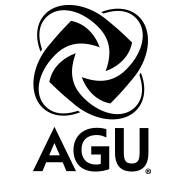
CZOs at AGU 2017
05 Dec 2017 (National, Boulder, Calhoun, Catalina-Jemez, Christina, Eel, IML, Luquillo, Reynolds, Shale Hills, Sierra) - Information on CZO award recipients, events, presentations, etc. at the 2017 AGU Fall Meeting.
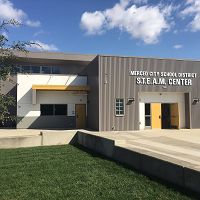
Observatory scientists volunteer with students at new STEAM Center in Merced
02 Nov 2017 (National, Sierra) - UC Merced scientists are sharing their research, stories, and expertise at Merced City School District's new STEAM Center.
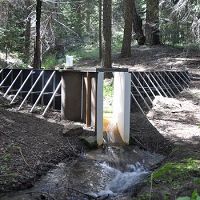
Water Resources Research Special Collection: Concentration-discharge relations in the critical zone
30 Oct 2017 (National, Boulder, Calhoun, Catalina-Jemez, Christina, Eel, IML, Luquillo, Reynolds, Shale Hills, Sierra) - Water Resources Research published a new special collection in September 2017 featuring concentration-discharge research from multiple CZOs.
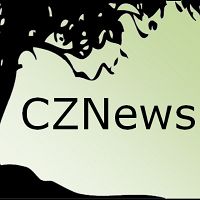
CZNews: Fall 2017
25 Oct 2017 (National, Boulder, Calhoun, Catalina-Jemez, Christina, Eel, IML, Luquillo, Reynolds, Shale Hills, Sierra) - The CZO National Office's quarterly newsletter CZNews: Fall 2017.
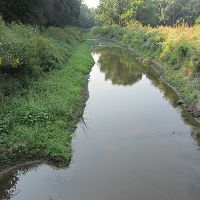
NSF News Release: Changes in non-extreme precipitation may have not-so-subtle consequences
18 Sep 2017 (National, IML) - Analysis of more than five decades of data leads to new conclusions
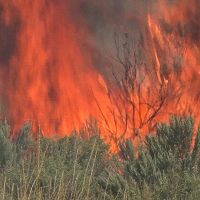
“Voices of Fire,” a documentary film about wildfire in the West, is now available on YouTube!
05 Sep 2017 (National, Reynolds) - Hugo Sindelar's documentary film about the Soda Fire, which burned the northern portion of Reynolds Creek and a total of 280,000 acres in just 7 days.
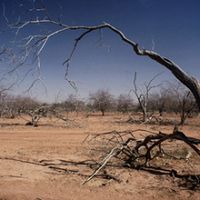
NSF News Release: What’s killing trees during droughts? Scientists have new answers.
14 Aug 2017 (National, Catalina-Jemez) - Researchers find that carbon starvation and hydraulic failure kill drought-stricken trees.

CZNews: Summer 2017
27 Jul 2017 (National, Boulder, Calhoun, Catalina-Jemez, Christina, Eel, IML, Luquillo, Reynolds, Shale Hills, Sierra) - CZO National Office's quarterly newsletter CZNews: Summer 2017.
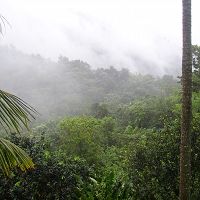
NSF Discovery: Can an ancient ocean shoreline set the stage for a tropical forest of today?
13 Jul 2017 (National, Luquillo) - Researchers at NSF Critical Zone Observatory and Long-Term Ecological Research sites are finding out.
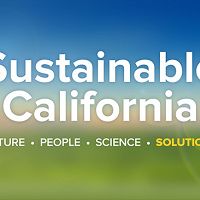
UCTV: Southern Sierra CZO researchers featured on Sustainable California channel
21 Jun 2017 (National, Sierra) - University of California Television (UCTV) features Bales, Conklin, Glaser, Safeeq, and others on the new Sustainable California channel
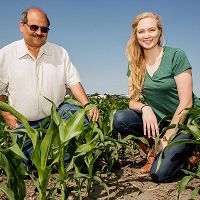
NSF Discovery: Corn better used as food than biofuel, study finds
21 Jun 2017 (National, IML) - Scientists obtain comprehensive view of agricultural ecosystems
_200_200_80auto_s_c1.jpg)
Contribute a classroom/field activity to NAGT’s Teach the Earth
22 May 2017 (National, Boulder, Calhoun, Catalina-Jemez, Christina, Eel, IML, Luquillo, Reynolds, Shale Hills, Sierra) - Contribute a classroom or field activity to Teach the Earth.

The frontier beneath our feet — an AGU commentary on the critical zone
21 Apr 2017 (National, Boulder, Calhoun, Catalina-Jemez, Christina, Eel, Luquillo, Reynolds, Shale Hills, Sierra) - AGU has published a collection of commentaries highlighting the important role Earth and space science research plays in society.

2017 CZO Webinar Series: Critical Zone and Society
06 Apr 2017 (National, Boulder, Calhoun, Catalina-Jemez, Christina, Eel, IML, Luquillo, Reynolds, Shale Hills, Sierra) - 2017 CZO Webinar Series: Critical Zone and Society.
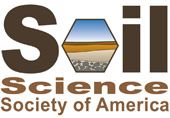
K-12 Soil Science Teacher Resources
24 Mar 2017 (National, Boulder, Calhoun, Catalina-Jemez, Christina, Eel, IML, Luquillo, Reynolds, Shale Hills, Sierra) - The Soil Science Society of America (SSSA) is a professional scientific society, made up of soil scientists, educators, and consultants focused on...
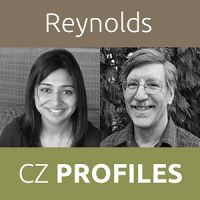
Critical Zone Profiles - Meet the people doing CZO science (Reynolds Creek CZO)
18 Jan 2017 (National, Reynolds) - Get a sense of the people and the work. Several members of the Reynolds Creek CZO are profiled here, including students and professors.

CZOs at AGU 2016
22 Nov 2016 (National, Boulder, Calhoun, Catalina-Jemez, Christina, Eel, IML, Luquillo, Reynolds, Shale Hills, Sierra) - CZOs at AGU 2016: Agenda and award recipients
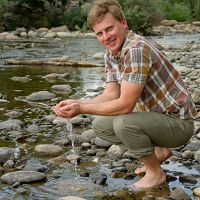
Critical Zone Q&A with researcher Adrian Harpold
19 Oct 2016 (National, Boulder, Catalina-Jemez, Reynolds, Sierra) - University of Nevada Reno's Adrian Harpold reflects on his past and present time researching at Critical Zone Observatories.
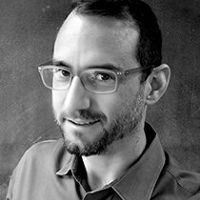
Harman Receives 2016 Early Career Hydrologic Science Award
19 Oct 2016 (National, Catalina-Jemez, Christina) - Ciaran Harman will receive the 2016 Early Career Hydrologic Science Award at the 2016 AGU Fall Meeting, to be held 12–16 December in San Francisco.
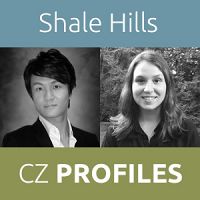
Critical Zone Profiles - Meet the people doing CZO science (Shale Hills CZO)
26 Sep 2016 (National, Shale Hills) - Get a sense of the people and the work. Several members of the Shale Hills CZO are profiled here, including students and professors.
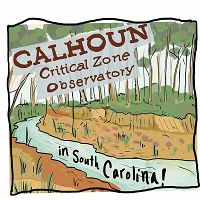
An illustrated introduction to the Calhoun Critical Zone Observatory!
22 Sep 2016 (National, Calhoun) - An introduction to the Calhoun Critical Zone Observatory, by Justin Richardson and Dan Richter, illustrated by Alana McGillis has just been posted!...
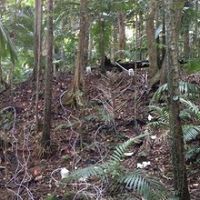
Critical Zone Science at ESA 2016
13 Jul 2016 (National, Luquillo) - National Science Foundation-funded research results presented at 2016 Ecological Society of America meeting in August
Cold Springs fire!
11 Jul 2016 (National, Boulder) - The Cold Springs fire is south of Gordon Gulch, and could threaten Gordon Gulch. The greater Nederland area is under an evacuation order, Most roads...
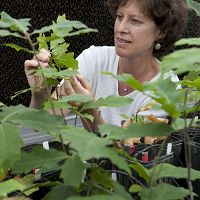
Susan Brantley has been awarded the 2016 Wollaston Medal
11 Jun 2016 (National, Shale Hills) - We are proud to announce that Dr. Susan Brantley, Lead-PI of the Shale Hills CZO has been awarded the 2016 Wollaston Medal.
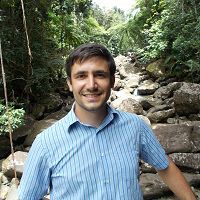
Critical Zone Profile - Diego Barcellos
09 Jun 2016 (National, Calhoun, Luquillo) - PhD Student, Soil Science, University of Georgia
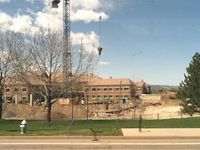
CU-Boulder to dedicate new SEEC facility today
14 Apr 2016 (National, Boulder) - The new SEEC building, the BcCZO home is being dedicated today April 14th. New labs, new offices!! BOULDER -- A dedication ceremony and reception...
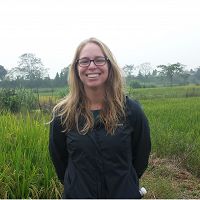
Critical Zone Profile - PAM SULLIVAN (hydrogeochemist, Assistant Professor)
23 Mar 2016 (National, Shale Hills) - Assistant Professor of ecohydrology, Department of Geography, University of Kansas
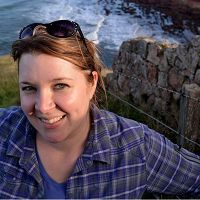
Critical Zone Profile - JORDEN HAYES (geophysicist, Assistant Professor)
23 Mar 2016 (National, Sierra) - Assistant Professor, Earth Sciences, Dickinson College
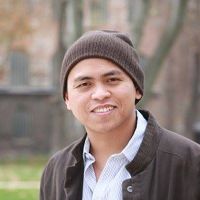
Critical Zone Profile - JAIVIME EVARISTO (ecohydrologist, PhD student)
23 Mar 2016 (National, Luquillo) - PhD student, Global Institute for Water Security, University of Saskatchewan
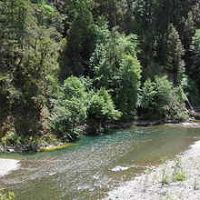
On World Water Day, scientists peer into rivers to answer water availability questions
21 Mar 2016 (National, Eel) - The following is part nine in a series on the National Science Foundation's Critical Zone Observatories (CZO) Network.
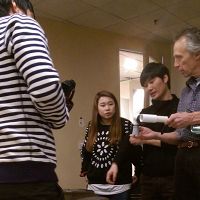
Korean KNU CZO visit great success!
01 Feb 2016 (National, Boulder) - BcCZO had a great visit from the KNU CZO in South Korea. A new CZO that has been funded for about 5 months...
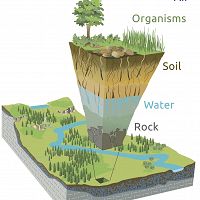
U.S.-China EcoPartnership for Environmental Sustainability Conference Summary
01 Feb 2016 (National, IML) - Summary of a conference and workshop dedicated to Critical Zone Science, Sustainability, and Services in a Changing World hosted by Purdue University.
Boulder Creek CZO has the honor of a visit from a South Korean CZO!
25 Jan 2016 (National, Boulder) - We are very excited to announce that a group of 8 scientists from Kangwon University, South Korea, will visit us this week to learn about how our...
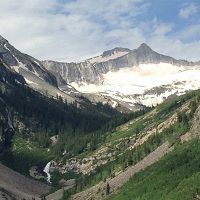
EOS Opinion: Understanding Ecosystem Services from a Geosciences Perspective
22 Jan 2016 (National, Catalina-Jemez) - Assessment of ecosystem services can be improved by including broader spatial and temporal scales of geosciences perspectives.
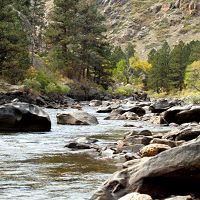
Water Resources in a Changing Climate
19 Jan 2016 (National, Boulder, Calhoun, Sierra) - CZO community members were chosen as keynote speakers at Colorado State University's Hydrology Days 2015.

NSF special report: Let It Snow! The Science of Winter
14 Jan 2016 (National, Sierra) - Report reveals inner worlds of snow and winter, and their importance to humans and ecosystems
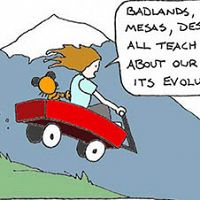
Suzanne Anderson’s presentation inspired this great comic strip by Miles Traer!
23 Dec 2015 (National, Boulder) - AGU 2015 was a great sucess this year, and inspired this great little cartoon by Miles Traer. Miles has been working with the American Geophysical...
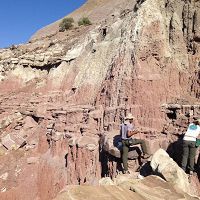
EOS: Taking the Pulse of the Earth’s Surface Systems
04 Dec 2015 (National, Boulder, Calhoun, Catalina-Jemez, Christina, Eel, IML, Luquillo, Reynolds, Shale Hills, Sierra) - Taking the Pulse of the Earth's Surface Systems In September of 2014, Laurel Larsen (UC Berkley), Elizabeth Hajek (Penn State), and others...
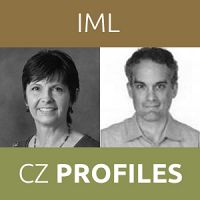
Critical Zone Profiles - Meet the people doing CZO science (IML CZO)
28 Nov 2015 (National, IML) - Get a sense of the people and the work. Several members of the Intensively Managed Landscapes (IML) CZO are profiled here.
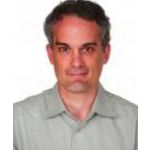
Critical Zone Profile - ANDREW STUMPF (Quaternary geologist, senior investigator)
28 Nov 2015 (National, IML) - Associate Quaternary Geologist, Illinois State Geological Survey; Prairie Research Institute, University of Illinois, Urbana-Champaign
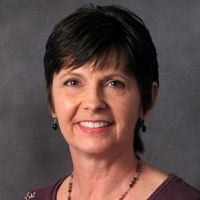
Critical Zone Profile - LAURA KEEFER (fluvial geomorphologist, senior investigator)
28 Nov 2015 (National, IML) - Head of Surface Water Hydrology & Hydraulics, Illinois State Water Survey, Prairie Research Institute, University of Illinois at Urbana-Champaign
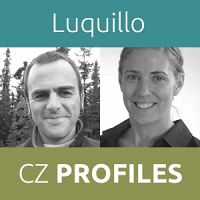
Critical Zone Profiles - Meet the people doing CZO science (Luquillo CZO)
15 Nov 2015 (National, Luquillo) - Get a sense of the people and the work. Several members of the Luquillo CZO are profiled here, including students and professors.
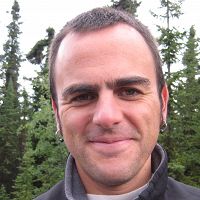
Critical Zone Profile - ADAM WYMORE (freshwater ecologist, post-doctoral researcher)
15 Nov 2015 (National, Luquillo) - Post-Doctoral Researcher, University of New Hampshire
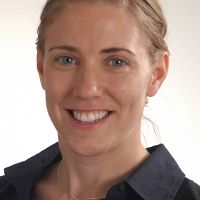
Critical Zone Profile - JANE WILLENBRING (geomorphologist, Assistant Professor)
15 Nov 2015 (National, Luquillo) - Assistant Professor of Earth and Environmental Science, University of Pennsylvania
-
Cross-CZO Events
2011 CZO All-Hands Meeting
2nd Biannual National CZO Network All-Hands Meeting, Biosphere II & Univ. of Arizona
Biosphere II, Tucson AZ, USA.CUAHSI Cyberseminar - Suzanne Anderson on Boulder CZO
Boulder Creek CZO: Natural experiments to study Critical Zone evolution and function
Online.CUAHSI Cyberseminar - Jon Chorover on Jemez-Catalina CZO
The Jemez-Santa Catalina CZO: Transformative Behavior of Water, Energy and Carbon in the Critical Zone: Quantifying Linkages among Ecohydrology, Biogeochemistry, and Landscape Evolution
Online.Joint CZO/SoilTrEC workshop at U Delaware
International Workshop on Design of Global Environmental Gradient Experiments using International CZO Networks, 8-9 November, 2011, Delaware , USA.
Rooms 121-128, John M. Clayton Hall, University of Delaware .CUAHSI Cyberseminar - Chris Duffy on Shale HIlls CZO
The Susquehanna/Shale Hills Critical Zone Observatory: A Earth-System testbed for process and prediction
Online.CUAHSI Cyberseminar - Mike Goulden on S Sierra CZO
Relationships between elevation, climate, and ecosystem properties in the Sierra CZO
Online.AGU Fall Meeting
Moscone Center, San Francisco.CUAHSI Cyberseminar - Noah Molotch on western CZOs
Snowmelt as a Driver of Ecohydrological Processes: Low-hanging Fruit for Cross-CZO Research
Online.CUAHSI Cyberseminar - Fred Scatena on Luquillo CZO
The Luquillo CZO: Linking Lithology to Critical Zone Processes
Online.CUAHSI Cyberseminar - Anthony Aufdenkampe on Christina CZO
Christina River Basin CZO: Spatial and temporal integration of carbon, mineral and water fluxes: a whole watershed approach to quantifying anthropogenic carbon sequestration
Online.CZO-Annual PI meeting:
CZO-Annual PI meeting 2012, hosted by Luquillo Critical Zone Observatory
Hotel El Convento, Old San Juan, Puerto Rico.Goldschmidt 2012
Goldschmidt Conference, Montréal, June 2012: Earth in Evolution
Palais des Congrès, Montréal, Canada.AGU Fall Meeting 2012
CZOs give more than 125 presentations at the 2012 American Geophysical Union Fall Meeting
Moscone Center, Fourth and Howard Streets, San Francisco, CA.CZOData IMC Meeting
CZOData Information Management Committee Kickoff Meeting
Stroud Water Research Center 970 Spencer Road Avondale, PA.EarthCube-CZO Workshop
EarthCube Domain Workshop: Engaging the Critical Zone community to bridge long tail science with big data
University of Delaware, Newark, DE.2013 student geophysics field trip at CRB-CZO
Annual SEG student chapter geophysics field trip again at CRB-CZO
Floodplains of White Clay Creek, within CRB-CZO.Webinar: Nutrient deserts, erosion and weathering in Sierra
Webinar offered April 18th on research from the Sierra Nevada range in California
Online.Inland Waters EarthCube Domain Workshop
An EarthCube Domain End-User Workshop: Integrating the inland waters geochemistry, biogeochemistry and fluvial sedimentology communities
Boulder, Colorado, USA.Amtrak Club "Soil to Sea Geomorphology" Symposium
2013 Amtrak Club meeting, 2nd annual symposium on "Soil to Sea Geomorphology"
The Johns Hopkins University, Baltimore, Maryland.Goldschmidt 2013 conference
Session 16B: Probing the Critical Zone (and related Session 19C) will be held at Goldschmidt 2013 in Florence, Italy 25-30 August 2013.
Florence, Italy.POSTPONED - 2013 CZO All-Hands Meeting
Postponed until 2014. 2nd Biannual National CZO Network All-Hands Meeting
University of Delaware, Clayton Hall.Chapman Conference: Soil Biogeochem
AGU Chapman Conference on Soil-mediated Drivers of Coupled Biogeochemical and Hydrological Processes Across Scales
Biosphere II, Tucson AZ, USA.Depths of the Critical Zone
Drilling, Sampling, and Imaging the Depths of the Critical Zone: NSF Workshop
Denver, CO.GSA Annual Meeting
Geological Society of America, 2013 Annual Meeting - CZO presentations
Colorado Convention Center, Denver, Colorado.AGU Fall Meeting
2013 AGU Fall Meeting - Southern Sierra CZO abstracts & presentations
San Francisco, Moscone Center.Watershed Science Master Class
A short course for graduate students and post-doctoral fellows Sponsored by CUAHSI and the University of Arizona
Biosphere 2 near Tucson, Arizona.Philadelphia 2014 workshop: Reactive Transport Modeling
The Geochemist's workbench Philadelphia 2014 workshop: Reactive Transport Modeling
The University of Pennsylvania: Room 360 Hayden Hall.“What’s so critical about the Critical Zone?” webinar
Speakers: Dr. Enriqueta Barrera (NSF) and Dr. Gordon Grant (USFS)
Internet .WyCEHG visits Calhoun for Geophysics Week
Calhoun CZO.Calhoun CZO Field Trip
Spring 2014 National CZO Program Meeting, Charlotte NC
Southern Piedmont and Calhoun CZO.20th World Congress of Soil Science
In commemoration of the 90th Anniversary of the IUSS: Soils Embrace Life and Universe
ICC Jeju, Korea.Goldschmidt
2014 Goldschmidt meeting in Sacramento, CA
Sacramento Convention Center Complex, California.Critical Zone Town Hall
CZO Town Hall at 2014 Goldschmidt Conference
Sacramento Convention Center Complex, California..December 8 CZO webinar
Using a CZO network to explore the architecture, dynamics and evolution of the Critical Zone
Online.Environmental Field Methods Course in Idaho
Environmental Field Methods Course (3 credits) in Idaho-Learn Critical Zone Skills
Idaho State University, Pocatello, Idaho.Exploring Four Critical Puzzles Workshop
Exploring Four Critical Puzzles about Trees, Water, and Soil: A Vision for Research
Pennsylvania State University .1:1 Data Consultation: Catalina-Jemez CZO and CZOData team
Catalina-Jemez CZO and the CZOData team will discuss sharing data.
Online: 11-1 EDT / 10-12 CDT / 9-11 MDT / 8-10 PDT.1:1 Data Consultation: IML CZO and CZOData team
IML CZO and the CZOData team will discuss sharing data.
Online: 3-5 EDT / 2-4 CDT / 1-3 MDT / 12-2 PDT.1:1 Data Consultation: Luquillo CZO and CZOData team
Luquillo CZO and the CZOData team will discuss sharing data.
Online: 12-2 EDT / 11-1 CDT / 10-12 MDT / 9-11 PDT.1:1 Data Consultation: Boulder CZO and CZOData team
Boulder CZO and the CZOData team will discuss sharing data.
Online: 1-3 EDT / 12-2 CDT / 11-1 MDT / 10-12 PDT.IML-CZO Offers Short Course on Organic Matter
IML-CZO Offers Short Course on Organic Matter
Purdue University.CZ Science, Sustainability, and Services in a Changing World
Critical Zone Science, Sustainability, and Services in a Changing World Workshop
Purdue University.1:1 Data Consultation: Southern Sierra CZO and CZOData team
Southern Sierra CZO and the CZOData team will discuss sharing data.
Online: 11-1 EDT / 10-12 CDT / 9-11 MDT / 8-10 PDT.1:1 Data Consultation: Shale Hills CZO and CZOData team
Shale Hills CZO and the CZOData team will discuss sharing data.
2:30-4:30 EDT /1:30-3:30 CDT /12:30-2:30 MDT /11:30-1:30 PDT.1:1 Data Consultation: Reynolds CZO and CZOData team
Reynolds CZO and the CZOData team will discuss sharing data.
Online: 11-1 EDT / 10-12 CDT / 9-11 MDT / 8-10 PDT.1:1 Data Consultation: Calhoun CZO and CZOData team
Calhoun CZO and the CZOData team will discuss sharing data.
Online: 3-5 EDT / 2-4 CDT / 1-3 MDT / 12-2 PDT.AGU 2015: A Town Hall for the Network of CZOs
AGU 2015: A Town Hall for the Network of Critical Zone Observatories (TH25D)
San Francisco, CA - Moscone Center, Moscone West - 2010.European Geosciences Union (EGU) General Assembly 2016
EGU Meeting will take place 17–22 April 2016 in Vienna, Austria.
Austria Center Vienna (ACV) in Vienna, Austria.CZO REU/RET 2016 Summer Program
CZO Research Experience for Undergraduates and Teacher
Shale Hills CZO (Penn State) and Stroud Water Research Cente.Goldschmidt Conference 2016
26th Goldschmidt Conference in Yokohama, Japan on 26th June to the 1st of July
Pacifico Yokohama, Yokohama, Japan.ESA Annual Meeting 2016
The Ecological Society of America's Annual Meeting in Fort Lauderdale, Florida
Fort Lauderdale, Florida .2016 GSA Annual Meeting
Denver, Colorado.ASA-CSSA-SSSA Annual Meeting 2016
Resilience Emerging from Scarcity and Abundance, Nov. 6-9, 2016, in Phoenix, Arizona.
Phoenix, Arizona .NSF Review of CZO Network
Review of CZO network by NSF will occur in Fall 2016
National Science Foundation, Arlington, VA.2016 AGU Fall Meeting
American Geophysical Union Annual Meeting in San Francisco, CA
Moscone Center, San Francisco, California .CZO Town Hall at AGU 2016
Town Hall: Critical Zone Observatories: Platforms for Collaborative Science
AGU Meeting, San Francisco, CA.AGU Chapman Conference: Extreme Climate Event Impacts
AGU Chapman Conference on Extreme Climate Event Impacts on Aquatic Biogeochemical Cycles and Fluxes
San Juan, Puerto Rico.CZO Webinar: Critical Zone Services
Critical Zone Services webinar presented by David Breshears and Jason Field
Online.GSA Joint Section Meeting 2017
GSA Joint Northeastern-North Central Section Meeting
Omni William Penn Hotel, Pittsburgh, PA.Webinar: Blue Revolution: Water scarcity in a changing world
Blue Revolution: Water scarcity in a changing world webinar presented by Praveen Kumar.
Online.CZO Webinar: Drought resilience and water security
Drought resilience and water security presented by Roger Bales
Online.SSA 2017 Annual Meeting
Seismological Society of America 2017 Annual Meeting in Denver, Colorado.
Sheraton Downtown in Denver, Colorado.CZO Webinar: Forecasting of Earth surface processes
Forecasting of Earth surface processes webinar presented by Jon Pelletier.
Online.CZO Webinar: Policy Relevance of Critical Zone Science
Policy Relevance of Critical Zone Science webinar presented by Steve Banwart
Online.2017 Arlington Meeting for Critical Zone Science
"Critical Zone Science: Current Advances and Future Opportunities”. Arlington, VA (near NSF).
DEADLINE: 01 APRIL 2017 for registration & optional abstract.
Hilton Hotel, Arlington, Virginia.Goldschmidt 2017
Goldschmidt 2017 will be held in Paris, France on August 13-18, 2017.
Le Palais des Congrès de Paris, Paris, France.6th International Symposium on Soil Organic Matter
6th International Symposium on Soil Organic Matter: Healthy soils for sustainable agriculture: the role of SOM
Rothamsted Research, Harpenden (UK).2017 International ASA, CSSA and SSSA Annual Meeting
American Society of Agronomy, Crop Science Society of America, & Soil Science Society of America 2017 International Annual Meeting
Tampa, FL.CZO Town Hall at AGU 2017
Town Hall: Critical Zone Observatories: Platforms for Collaborative Science
New Orleans Ernest N. Morial Convention Center.CZO / LTER / NEON / ISMC Joint Workshop
Modeling the Critical Zone; State of the Art, Data Integration, and Frontiers
Boulder, Colorado.GSA Northeastern Section Meeting 2018
Burlington, Vermont.GSA Joint Section Meeting 2018
GSA Joint Rocky Mountain and Cordilleran Section Meeting
Flagstaff, Arizona.2018 Clay Minerals Society Annual Meeting
The 55th Annual Meeting of the Clay Minerals Society: New Visions in Clay Science
University of Illinois at Urbana-Champaign.Goldschmidt 2018
Boston, Massachusetts.GSA Annual Meeting 2018
The Geological Society of America 130th Annual Meeting
Indianapolis, Indiana.SSSA International Soils Meeting 2019
2019 Soil Science Society of America International Soils Meeting
San Diego, California.CUAHSI Training Workshop
The Role of Runoff and Erosion on Soil Carbon Stocks: From Soilscapes to Landscapes
Knoxville, TN. -
Cross-CZO Models
Explore Further
